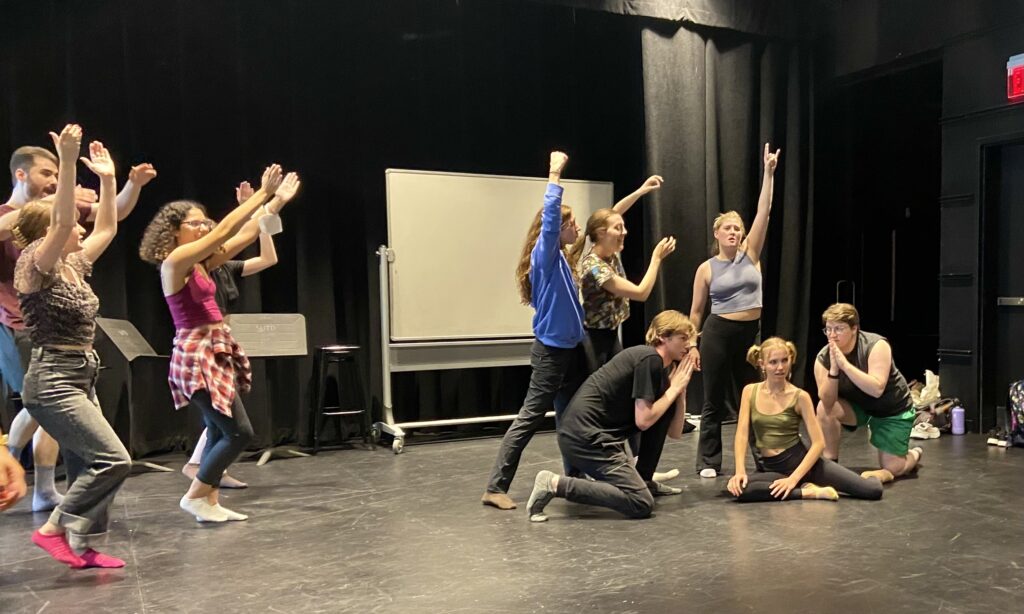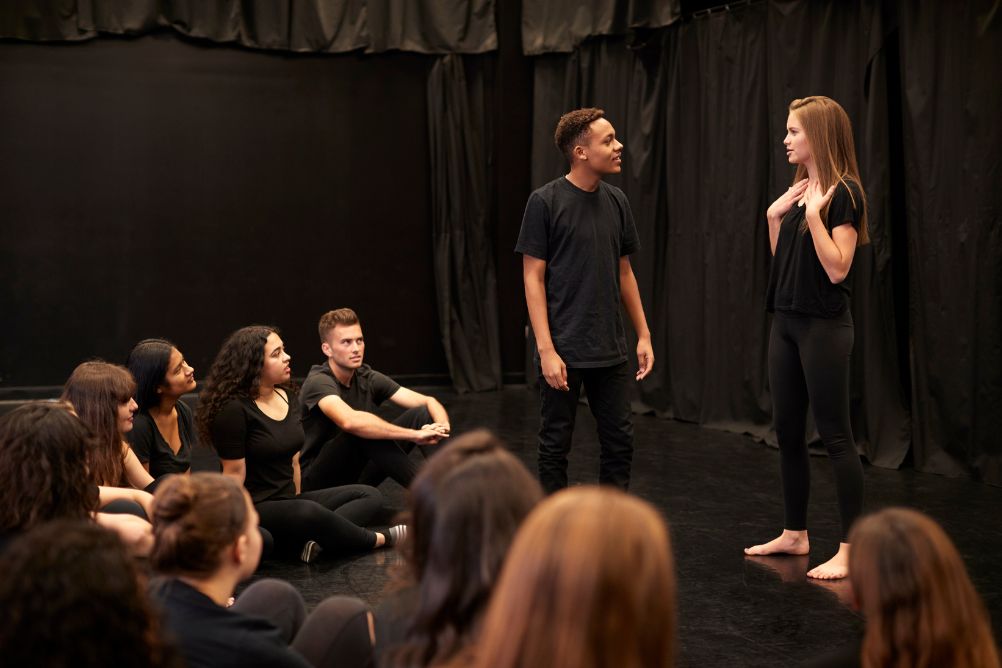For aspiring actors, the journey to success is often filled with auditions, rejection, and the thrill of landing a role. While talent and passion are essential to this journey, ongoing training plays an equally critical role in shaping an actor’s career. Acting classes aren’t just for beginners—they’re an essential part of any actor’s growth, whether you’re just starting out or you’ve already made a name for yourself.
In this post, we’ll explore why acting classes are crucial for career development and provide guidance on how to choose the right ones for your unique career goals.
1. The Benefits of Ongoing Training
Acting is a craft, and like any craft, it requires continuous practice and development. Even the most successful actors are constantly honing their skills to stay relevant and adaptable. Here’s why ongoing training is so important:
a. Improving Technique
Acting classes help actors refine their technique, whether that’s learning how to express emotions more authentically, working on vocal control, or mastering physicality. A strong technique is what allows actors to transform into different characters convincingly. Without it, performances can feel forced or one-dimensional. Ongoing training ensures that actors are equipped to approach each role with confidence and skill.

b. Expanding Range
An actor’s range is one of their most valuable assets. Acting classes expose actors to new genres, styles, and techniques that challenge their usual way of performing. By studying different approaches, such as classical acting, method acting, or improvisation, actors can expand their range and increase their chances of landing diverse roles. Training allows actors to break out of their comfort zones and explore characters they may have never thought they could play.
c. Networking and Industry Connections
Training is also a great way to network within the industry. Acting schools often have connections with casting directors, agents, and producers. In addition to learning valuable skills, students have opportunities to meet industry professionals who can help open doors for their careers. Many acting schools also host showcase events where students perform for agents and casting directors—creating a direct path to career opportunities.
d. Building Confidence
No matter how talented you are, acting requires vulnerability. The more you train, the more comfortable you become with stepping into a character, taking risks, and making bold choices. Acting classes provide a safe space to experiment, make mistakes, and learn from them. Over time, this builds confidence and reduces performance anxiety—an important factor in any audition or on-set situation.
2. Types of Acting Schools and Classes
Now that we know why acting classes are crucial, let’s take a closer look at the different types of acting schools and classes you can choose from. Each offers a unique approach to acting, and selecting the right one depends on your goals, preferred style, and where you are in your career.
a. Method Acting
Method acting, developed by Lee Strasberg, encourages actors to deeply embody their characters by drawing on personal experiences and emotions. Actors trained in this technique often use intense emotional recall to connect with their roles. If you’re passionate about exploring a character’s inner life and motivations, method acting could be a powerful tool for you.
b. Meisner Technique
The Meisner Technique, developed by Sanford Meisner, focuses on the importance of emotional truth and instinctive responses. Meisner’s approach is all about being present in the moment and reacting honestly to your scene partner. If you struggle with “acting” or find it hard to stay in the moment during a performance, this technique might help you develop a more natural, reactive style of acting.
c. Classical Acting
Classical acting is often associated with Shakespearean plays and other classical works. This style emphasizes voice projection, diction, and the ability to perform with precision and clarity. If you’re aiming to perform in theatre, especially classical productions, taking a class that focuses on these skills will be invaluable for you.

d. Improv Classes
Improvisation is an essential skill for actors, especially those interested in comedy or live theatre. Improv training helps you think on your feet, trust your instincts, and react quickly to unpredictable situations. These skills can also be useful in auditions, where you might be asked to improvise or make creative choices on the spot.
e. On-Camera Training
On-camera acting classes focus specifically on the nuances of acting for film and television. In these classes, you’ll learn about camera angles, framing, and the importance of subtlety. The pacing and performance style required for the screen is very different from live theatre, so if you’re planning to pursue a career in film or television, on-camera training is a must.
f. Voice and Speech Coaching
Voice training helps actors develop vocal control, clarity, and range, essential for speaking clearly and effectively in any role. Voice coaching can help improve your projection, diction, and accents, as well as train you to use your voice without straining it.
3. How to Choose the Right Acting Class for You
With so many different schools and acting techniques available, choosing the right class can feel overwhelming. Here’s a guide to help you make an informed decision:
a. Consider Your Career Goals
Think about the type of acting work you want to pursue. Are you looking to work in theatre, film, television, or commercials? Different acting classes specialize in different areas. For example, if you’re focused on stage acting, a classical or method acting course might be the best fit. If you’re aiming for a career in TV and film, on-camera training will be essential.
b. Research the Teacher’s Background
The experience and teaching style of the instructor can make or break your training. Research the teachers to understand their experience, teaching philosophy, and credentials. A great teacher will challenge you, inspire you, and help you grow as an actor. Look for someone whose work you admire and whose approach resonates with you.
c. Look for a Structured Curriculum
A good acting class should have a structured curriculum that covers key skills such as voice work, scene study, improvisation, and character development. It should provide a balanced approach, so you can grow in all areas of acting, not just one. Find out if the class offers a variety of exercises and performances to apply what you’re learning.
d. Class Size and Atmosphere
Smaller class sizes allow for more personalized attention and meaningful feedback. Pay attention to the class environment—does it foster creativity and trust? Look for classes that provide a supportive, encouraging atmosphere where you can feel safe to take risks and make mistakes.
e. Cost and Time Commitment
Acting classes can range from affordable community theatre workshops to expensive conservatories. While cost should never be the only factor in your decision, it’s important to consider your budget and how much time you can commit. If you’re starting out, community classes or short-term courses might be a good way to get your feet wet before committing to a more intensive program.
4. The Value of Lifelong Learning
Even if you land your dream role, continuing your training will keep you sharp and ready for the next opportunity. The entertainment industry is constantly evolving, and so is the craft of acting. Lifelong learning will ensure that you remain adaptable and relevant in an ever-changing industry.
Conclusion: Acting Classes are an Investment in Your Career
No matter where you are in your acting journey, training is essential for growth and career advancement. The right acting class can build your confidence, expand your skill set, and help you stay competitive in the industry. Whether you choose method acting, improv, or on-camera training, acting classes provide the foundation for a successful, dynamic career. Take the time to choose the right classes that align with your goals, and invest in yourself as an actor. The more you learn, the further you’ll go!




